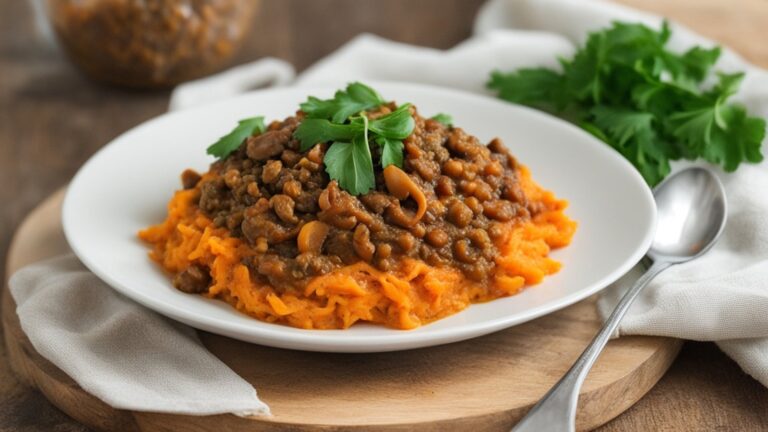One big debate in the discussion around veganism is to what extent manufactured vegan substitutes for animal products (such as meat and dairy) should be included in a plant-based diet. Are these products ok to rely on heavily? Or should your focus as a vegan be more on whole foods?
In this article, we will give you a quick rundown on what it means for something to be considered a “whole food,” as well as a general overview of vegan substitutes as a popular substitute for some whole foods. We will then go on to address some of the main concerns around vegan substitutes:
- Nutritional face-off: This article covers the nutritional pros and cons of both whole foods and manufactured vegan products as part of a plant-based lifestyle.
- Convenience factor: We’ll talk about the role of processed vegan foods in a plant-based diet, mainly as a convenient way to get nutrients that are more difficult to find in plants.
- Quality: Not all vegan substitutes are created equal. Learn what to look for when selecting products.
- Striking a balance: Both whole foods and vegan substitutes are an important part of a modern vegan diet. Let’s talk about how to find a healthy balance between the two.
Navigating the world of plant-based nutrition can be a complex journey but it’s our hope that this post will help make things just a little bit easier for you. Happy reading.
The Whole Food Advantage
Whole foods are foods that are unprocessed and unrefined or processed and refined as little as possible before being consumed. They typically do not contain added sugars, salt, or fat.
In a plant-based diet, whole foods provide a wealth of nutrients. These include vitamins, minerals, fiber, and phytochemicals. These nutrients are essential for maintaining good health and preventing diseases.
Whole foods such as fruits, vegetables, whole grains, legumes, nuts, and seeds offer the following benefits:
- A plethora of nutrients such as vitamins, minerals, and (in some cases) plant-based protein.
- High in fiber and low in calories, helping to maintain a healthy weight
- Rich in antioxidants and phytochemicals, which help protect against chronic diseases
If you are diligent in including a wide variety of the right whole foods in your diet, it is totally possible to provide your body with everything it needs to live a healthy, happy life.
Vegan Substitutes: A Convenient, Tasty Alternative
Plant-based substitutes are products designed to mimic the taste, texture, and nutritional profile of animal-based foods. They are often used by those transitioning to a vegan diet or by those who want to enjoy familiar flavors without animal products.
These substitutes can include meat alternatives, dairy alternatives, and egg alternatives. They can be made from a variety of plant-based ingredients such as soy, peas, and wheat and are often fortified with nutrients that are harder to find in whole plant foods alone.
Some popular vegan substitutes include:
- Meat alternatives like tofu, tempeh, and seitan
- Dairy alternatives such as almond milk, soy milk, and coconut yogurt
- Vegan egg replacements
While these vegan alternatives can offer convenience and familiarity, it’s important to consider their nutritional profile. Not all vegan substitutes are created equal, and some can be highly processed with added sugars, fillers, and unhealthy fats. Check out the section below titled “Making Informed Choices” to learn more.
Nutritional Comparison: Whole Foods vs. Vegan Substitutes
When comparing whole foods and vegan substitutes, it’s crucial to consider their nutritional content. Whole foods are often more nutrient-dense, providing a wider range of vitamins, minerals, and fiber. They are also less likely to contain added sugars, unhealthy fats, and artificial ingredients.
Vegan substitutes, on the other hand, can vary greatly in their nutritional profile. Some are fortified with essential nutrients and can be a good source of protein. However, others can be high in sodium, sugar, and unhealthy fats.
Key factors to consider when weighing the nutritional pros and cons of whole foods vs vegan substitutes include:
- Protein content and quality
- Vitamins and minerals
- Fiber content
- Fat quality and quantity
Let’s talk about each in turn.
Protein and Essential Amino Acids
Protein is often a concern for those following a plant-based diet. It’s just a little harder to find outside of the animal world. It’s not impossible, though. Whole plant foods like legumes, nuts, and seeds are excellent sources of protein.
It is important to note that many whole plant foods lack 1 or more of the 9 essential amino acids that make a complete protein. That’s why it’s important to maintain a varied diet. While one plant might lack an amino acid, another is sure to have it. You just have to eat both!
Vegan substitutes can also be high in protein, especially those made from soy or peas. In fact, many people turn to vegan substitutes as a main source of protein in their plant-based diet. The quality of protein can vary from product to product, though. Just as with whole foods, some vegan substitutes may lack one or more of the 9 essential amino acids that make a complete protein.
Vitamins and Minerals
Whole foods are rich in vitamins and minerals. For example, leafy greens are packed with iron and calcium, while fruits are high in vitamin C and potassium.
Vegan substitutes are often fortified with vitamins and minerals, such as B12 and iron, nutrients that are less readily available in the plant world and thus coveted by health-conscious vegans. However, the bioavailability of these nutrients may not be as high as those found naturally in whole foods.
Fiber and Digestive Health
Fiber is abundant in whole plant foods. It aids in digestion, promotes satiety, and supports gut health. Whole grains, fruits, and vegetables are particularly high in fiber.
On the contrary, vegan substitutes don’t generally provide as much fiber, especially if they are highly processed. Be sure to check the label for fiber content.
Fats and Heart Health
Whole plant foods provide what nutritionists deem “healthy” fats. Avocados, nuts, and seeds are rich in monounsaturated and polyunsaturated fats, which are beneficial for heart health, brain function, and more. They can also help reduce inflammation, a key factor in many diseases.
Vegan substitutes, particularly processed ones, may contain unhealthy fats like trans fats or high amounts of saturated fats. Not all, though. Make sure to read labels and choose products with healthier fat profiles where possible.
The Role of Processed Foods in a Plant-Based Diet
Processed foods, including vegan substitutes, often play a role in a plant-based diet. They offer convenience and can help make the transition to a plant-based diet easier.
Many do a great job at mimicking animal products so that vegans (or those tip-toeing into the transition) craving a dose of meat, dairy, eggs, etc., can get their fix. They are also often fortified with nutrients that may be harder to get from a plant-based diet, such as vitamin B12 and omega-3 fatty acids.
However, not all processed vegan substitutes are created equal. Some can be high in sodium, sugar, and unhealthy fats. They may also lack the fiber and phytonutrients found in whole foods.
So, while it’s fine for them to have a place in a plant-based diet, they should not replace whole foods entirely. Additionally, it’s important to make informed choices and opt for minimally processed foods whenever possible. Check out the section below titled “Making Informed Decisions” for more information.
Making Informed Choices: Reading Labels and Beyond
When choosing vegan substitutes, it’s important to read labels carefully. Look for products with minimal ingredients that are:
- Low in added sugars
- Free from trans fats and saturated fats
- Low in fillers and additives such as xanthan and guar gums, as well as carrageenan
In addition, you’ll also want to pay attention to where/how the brand at hand sources its ingredients. Just as many animal products are sourced in ways that are unethical and/or bad for our planet, some vegan substitutes are as well.
Striking the Right Balance
In the world of plant-based nutrition, there’s room for both whole foods and vegan substitutes. The key is to strike a balance that suits your lifestyle, nutritional needs, and personal values.
Vegan substitutes, like plant-based meats and dairy alternatives, can save time and effort, making it easier for you to get the nutrients you need. They can also add variety to a plant-based diet and help you beat omnivorous cravings.
However, it’s crucial to remember that these substitutes should complement, not replace, whole foods in your diet. Whole foods provide a wealth of nutrients that are essential for health and well-being. They should take priority over processed products wherever possible.
Related Reads
- How to Maintain a Balanced Vegan Diet
- The Health Benefits of a Vegan Diet
- Top 10 Nutrient-Rich Vegan Superfoods
Teddy Danielson
2 responses to “Whole Foods vs. Vegan Substitutes in a Plant-Based Diet”
As a whole food, plant-based educator, I’d like to correct some misinformation in this article regarding plant protein. Plant protein has all the essential amino acids as does animal protein, they are just in varying amounts. It is wrong to say that plants are incomplete protein. Vegan dieticians like Brenda Davis, who is one of 3 authors on a recently published book called, Plant Powered Protein, comments on this quite frequently in lectures about protein.
Also, as whole food, plant-based eater, I also disagree with the statement that plant protein is harder to find than animal protein. There are so many different kinds of legumes and whole grains, and these are excellent sources of plant protein. So our nuts and seeds as mentioned in the article, but these come with a higher fat and caloric profile than legumes and whole grains.
Plant protein over animal protein for cardiovascular health is advocated by the ACC, the American College of Cardiology. People interested in seeking optimal health should know that if you are willing to cook, it is not difficult to eat a healthy vegan, whole food, plant-based diet. And when you don’t feel like cooking, Tasteful Kitchen can help you out.
- admin
Thank you for your thoughtful comment, Denise!
We have based out research on science from Cedars Sinai and other organizations. There certainly are a plethora of plants that deliver the 9 essential amino acids that make up a complete protein. This post from Healthline indicates many of them. Our point is that all animal proteins are complete. There are only a select number of plants that deliver the same. So, as a vegan, one must be more vigilant to ensure they are getting enough of all 9 amino acids that make up a complete protein. It takes a little extra effort. But it’s worth it!
And you’re right! There are SO many plants out there that you can find proetein in. Again, it’s just important to make sure you are giving your body everything it needs. This is also important in any diet.
And, yes!! Plant protein can do wonders for your health! We have a whole post dedicated to the issue here.
Thank you for your feedback!!!
xoxo the team at Tasteful Kitchen







Leave a Reply